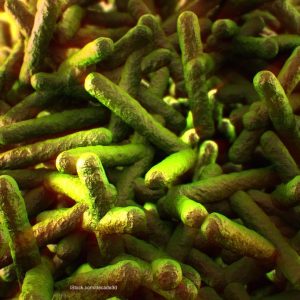Listeria is often described as rare and deadly. Now researchers from the University of Southern Denmark have added another word to describe the bacteria: adaptable.
 They exposed Listeria to substances normally used to fight it and studies its reaction. They found that Listeria used different strategies to resist antibiotics, bile, salt, acid and ethanol.
They exposed Listeria to substances normally used to fight it and studies its reaction. They found that Listeria used different strategies to resist antibiotics, bile, salt, acid and ethanol.
“Generally speaking, Listeria must be described as extremely adaptable. It is constantly aware of its surroundings and if the environment changes around it. It reacts instantly and has a number of strategies to withstand threats”, said Associate Professor, Birgitte Kallipolitis, PhD .
To infect cells, Listeria needs to produce certain proteins, but it can’t produce so many that the immune system is triggered. The researchers discovered that when “attacked” by antibiotics, bile, acid or ethanol, Listeria begins to make special RNA molecules that help it adjust how much protein to make and to repair its cell walls. They are studying whether Listeria can be rendered harmless if the RNA is removed.
Symptoms of a Listeria food poisoning can take up to two months after exposure to develop. They include stiff neck, headache and flu-like symptoms. Children, seniors, those with compromised immune systems and pregnant women are at special risk. Among pregnant women, Listeria infections can cause miscarriage, stillbirth. A Listeria outbreak linked to sausage has killed 12 people in Denmark this summer.




